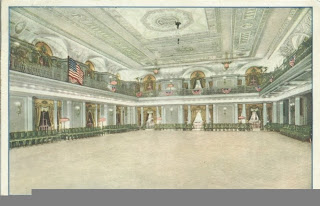lijit search
WHAT IS MEAT AND HOW WE SHOULD CUT THE MEAT IN TO FRAGMENTATION IN CUTS ITS PARTS LIKE BEEF, VEAL AS MORE ETC.
Meat is probably the most important ford obtained from flesh of beef, veal, mutton, lamb and pork. They are domesticated primarily to be slaughtered and eaten. It is a good source of protein, which we need for out body growth and repair.
The animals for meat are slaughtered as per the butchery steps. For that, they are inspected and selected to disinfected and quality meat. At the first step, they are given rest (20-24 hours) and plenty of water without feeding any thing. It helps in easy bleeding and retards bacterial infection. The second step is stunning (unconscious) the animal by electric shocks or putting them in a carbon dioxide chamber of be easily killed. And the third step is flaying and cleaning the killed animal.
After slaughtering it is generally hung of between 3-10 days depending on the type and quality of the carcass. This allows natural enzymes to tenderize the flesh. The carcass of beef is split into two sides and those of lamb, sheep, pigs and calves are left whole. Then the carcass if kept in cool room before being sent to market.
Meat cuts are composed of muscled, tissues, fat and bones. The proportion of composition depends on:
-Type of animal
-The age of animals
-The type of food on which the animal lived and lastly, the part of the carcass from which the cut is taken.
By their nature and composition, certain cuts of meat are most appropriate for certain methods of preparation. It is very essential for the catering personnel to know how to choose correct meat cuts and the recommended temperature for their preparation.
WHAT'S THE MEANING OR DEFINATION OF KITCHEN AND ITS TYPES IN EVERY SECTORS FIELDS OF MANAGEMENT
Main kitchen
Main kitchen is probably located at the central part of hotel where overall sequence of food receiving, storing, preparing, cooking, serving and clearing areas are properly designed and managed. Technically, it is known as central kitchen having many sections. Hence, it may occupy a large space. This kitchen provides wide range of food varieties e.g. Indian, continental, oriental, Mexican, Italian, etc. through its respective section with the help of skilled/semi-skilled culinary crafts persons called chef-de-parties and commie cooks.
A main kitchen is usually located adjacent to room service, service bar, store, pantry stillroom, bakery, butchery etc. for efficient work flow. It may have both a’ la crate and table d’ hotel menu for breakfast, lunch and dinner. This kitchen may serve up to three or four line dining restaurants simultaneously. There is often a separate kitchen for banquet and other activities.
Basically, main kitchen is divided into the following sections:
-The hot sections (the main cooking areas)
-Still room
-The vegetable preparation area
-The cold section
-The pastry/bakery section
-The butchery section
-Attached cleaning and washing area (kitchen steward)
-Cold provisional store
-Head chef’s office
-The larder
-Temporary kitchen
Satellite kitchen
Satellite kitchen is constructed and established to cater to a particular outlet where the main kitchen cannot cater due to its location disadvantage. Largely, this kitchen can organize most of the preparation work in its own kitchen. However, it may depend upon the main kitchen for various other things such sauce, stocks, gravies, pastas, etc. usually such a chef commands over this kitchen. This kitchen becomes a must for specialty restaurants such Andean, Continental, Chinese, Mexican, Nepalese, etc. which are located away from the main kitchen.
Fast food kitchen
Fast food kitchen is influenced by American catering technology, i.e. fast food to lead a fast life. Fast food was developed from original fish and chips concept at that time. But modern catering mostly provides dry and light food. It is independently established to meet the pace of customers’ busy life. It is specially located at the public area (lobby level) of a hotel, or out of hotel where either food is taken away or consumed at the fast food lounge area.
Most of the fast food establishments may be found in retail and leisure areas and in road side service complexes, airport lounge, railway stations, and at some events where mobile hamburger and hot-dogs stalls are traditionally seen.
It provides varieties of dry and light meals like burger, sandwich, fish and chips pizza, snacks, grilled meat/fish/shellfish, cold and hot beverages, etc.
The characteristics of fast food kitchen are as follows:
-Highly equipped with standard equipments.
-Fully skilled employees.
-Pre-cooked food at reasonable price range.
-Established anywhere to cater to the fashionable customers.
-Products offered can be cooked quickly and held in the short-term without deteriorating.
-Mostly pre-plated service.
-Adequate miser-en-place.
-Large turn out of customers.
-Precise portion control.
Display kitchen
In this kitchen food is prepared and cooked in full open view of customers, which appeals to the eyes, palate and dining experience of the consumers. At the same time, the sizzle and aroma of food item adds to the pleasure of eating e.g. grill Room. The hygiene, sanitation and décor of the kitchen, as well as the skill and showmanship of the staff in particular may determine the sale of such kitchens. This kitchen also seeks the support of the main kitchen for various items. It is headed by soups chef/ chef de parties.
WHAT DO YOU MEAN BY BAR AND ITS CLASSIFACATION AND ITS FUNCTION IN LARGE DELUX HOTEL OR MOTEL OR EVERY SECTORS IN HOSPITALITY

The word ‘Bar’ is derived from the American word \’ Barrier’ which means a fence or wall. The counter is located attractively with bottles and glasses displayed behind it within a well-decorated rack.
Bar is an important part of the food and beverage department in a hotel. It provides alcoholic and non-alcoholic beverage to the customers. It is established independently with the separate license, or included with the hotel by obtaining legal permission from the civil authority.
In the modern days, bar is designed to suit the space available and reflects the character of décor. It should be able to serve the drinks over the counter and by waiter service. Seats are required for patrons wishing drinks at the bar and may be in the form of seats or tall barstools. Bar should be facilitated with adequate glass storage racks, washing sinks, wines, spirits and liqueur bottle displaying racks (shelves/cellar), bottle cooler, cash register, refrigerator and other bar utensils. Equipments for the bar include one or more refrigerators, chilled dole plate icemaker and temporary storage for empty bins for garbage, etc.
The bar service means simply a drink which include non- alcoholic beverage e.g. cold drinks, juices, syrups, squashes, mineral water, and alcoholic beverages e.g. spirits, wines, liqueurs, beers, cocktails and tobacco products. In certain bars complimentary snacks are also provided. A bar is classified into.
Classification of bar
Hotel operated bar
These bars are designed and built as per the hotel’s standard, policy and management. It is a part of food and beverage department. Such bars are located at the specialty restaurants attached with dining where food is also served, or it may be separately located at the other convenient areas of the hotel.
Types of bar in a large deluxe hotel
Lounge bar: this bar is also known as lobby bar. It is located in the lobby area. The guests can interact with the bar personnel. There are provisions for guest seating at the bar itself. In this bar all types of drinks are openly displayed one the bar rack (shelves) behind the counter. The bar tender prepares, serves and sells drinks at the counter or tables directly. Heavy meals are neither allowed nor served in this bar. Mostly complimentary snacks are offered to accompany the drinks.
Service bar: this is also known as hidden bar. It is ideally located at the back of the restaurant dining areas. It is attached with the main kitchen area or back of the house space away from the guest view. The customers are not allowed to enter and have drinks in this bar. This is also known as store/dispense bar which supplies beverage to the other outlets of food and beverage department in a hotel including kitchen.
Main bar: it may also be called in-room bar. It is ideally placed in the guest’s room/suites within a small refrigerator. The mini-bar is stocked up daily by the room service staff. It contains a selection of miniature bottles of spirits, small cans of beer, fruit juice, mineral water and other soft drinks. The mini bar of the occupied room is checked daily by room service staff, and any sale that has occurred are noted and then added to the guest’s account.
Mobile bar: it is also known as trolley bar that can be moved from one place to another within the hotel as per the requirement. The moveable trolley is equipped with spirits, wines, liqueurs and other related drinks. Wine butler or bar person, who can serve drinks using trolley to the guest, are entrusted. This bar is temporary and arranged during banquets. Similar bars are also available in aircraft and ship catering.
Restaurant operated bar/ independent bar
This bar is also known as dispense bar. It is located in the customer’s service area if the restaurant. It is independently established and licensed as per the nature of the bar. The restaurant bar is designed as per the standard, facilities, location and the policy of the management.
The availability of the equipment and various drinks is similar to hotel bars. However, the service technique and characteristics of surrounding to be given to the customers will be different. The numbers of staff are lesser than hotel, but extra facilities like music, dance and live band, gazal, cultural programs, etc. may be performed for enjoyment and enterta8inment of the customers. Some popular independent bars in Nepal are Red Onion Bar, Absolute Bar J bar etc.
Usually such bars are run by owners. Under his/her guidance skilled manpower is employed in a fixed number. However, the following bars such as club bar, snacks bar, milk and coffee bar, cocktail bar, wine bar, pubs, poolside bars discotheque, etc. differs drastically in their nature.
WHAT DO YOU MEAN BY BAR AND ITS CLASSIFACATION AND ITS FUNCTION IN LARGE DELUX HOTEL OR MOTEL OR EVERY SECTORS IN HOSPITALITY
WHAT DO YOU MEAN BY VARIOUS OUTLETS OF FOOD AND BEVERAGE DEPARTMRNT IN A LARGE HOTEL OR MOTEL
Restaurant
A restaurant is defined as ‘an eating house where refreshments and meals may be obtained on payment”. It is a modern term in English. It was gradually adopted in to the English language after 1765 A.D. when Boulanger, a French man in Paris, served soup that he called Restaurant which in English meant restorative.
Restaurant is a public place where meals and rinks can be bought and consumed simultaneously. Restaurant in a hotel can be found in different cuisine and service style. It’s layout should account for the feature of its room, external vistas, internal displays and entertainment, method of food service, seat arrangements and type of furniture. The designs of tables and chairs must be considered in terms of its total effect.
The restaurant dining with attached kitchen is fully equipped with cutlery, crockery, glassware, hollowware, linen and other essential appointments. Many restaurants in commercial sector are independently established, either in tourist areas of city or in the country side. It encourages the customers to have various meals and drinks as per their choice. Some of these restaurants have been specialized in serving a specific type of cuisine. Their growth is dared to changeable concept of modern and fashionable generation. These include Nepali, Indian, and Chinese. Italian, Continental, etc. restaurants for breakfast, lunch and dinner. Likewise, some restaurants are named after products and varieties. Such as steak House, Pizza House, Hot Bread, Mo. Mo Magic, etc. they may even offer take away food service such as, a delicatessen, snack, kiosk, mobile catering, fast food counters, etc.
Types of restaurant in large hotel
Specially restaurant
This restaurant in a large hotel is stylish and specialized in specific cuisine e.g. Nepali, Chinese, Indian or Continental offering a variety of choices in food and beverage. Such restaurants are referred to as fine dining restaurant as well. It may be located in any part of the hotel with-in quieter and spacious surroundings. It is a formal restaurant offering personalized service. Both a la carte and table d’ hotel menus are served here. The decor is geared-up to suit the cuisine it serves. The selling price of the food is comparatively high due to higher overhead cost.
Specially restaurants normally operate during the luncheon and dinner time with the entertainment of music, bands, gazal or folk dance. These restaurants not only provide excellent food and beverage service. But also offer high standard equipment, food décor and other amenities for the customers satisfaction.
Coffee shop
The unites states of America is regarded as the birthplace of coffee shop where the concept of fast food for fast life became very eminent. Coffee shop is usually located at the lobby level of hotel within the open view of guests. It provides mixed cuisines which are fast to prepare. It is open for twenty four hours. It has informal atmosphere. Most coffee shops offer piped music and modern décor.
Coffee shops usually offer pre-plated food promptly from the kitchen. Both a la carte and table d’ hotel menus in simple cosine are available in different times of day or night. The dishes in the menu are determined by the food and beverage director/manager in consultation with executive chef after carefully studying the market, location, staff and policy.
Grill room
This is a restaurant that specializes in various grilled or broiled cut/whole meat such as meat, poultry, fish and shellfish in a large quantity, grilling is done over and open heat on a metal griller(char grill) or over/under an electric heaters or infrared broiler. Food is prepared and cooked in full open view of customers, which appeals to the eyes, palate and dining experience of the consumers. At the same time, the sizzle and aroma of grilled meat adds to the pleasure of eating. Such restaurants were previously found only in luxury hotels in Nepal for foreign tourists.
Discotheque
Discotheque is a modern dance restaurant. It uses hi-tech sound and light systems to provide music and charm atmosphere with dance floor. Such restaurants are popular among the youths. Only drinks (can and tetra pack) and snacks are available to the customers.
It can be a part of hotel or can be an individual entity. In hotels, the discotheque is usually located in the basement to seclude it from other areas because of its high-pitch sound. It is always attached with bar. There is a certain age bar for the customers and one has to pay a certain entrance fee to get there.
WHAT DO YOU MEAN BY BANQUET HALL OR FRENCH WORD BANQUE
The word banquet is derived from a French word ‘banque’, which refers to mass or gathering of people. The history of banqueting is traced back to sumptuous feasts or various ceremonial feasts held in honor of visiting host or monarch. It is an essential outlet of food and beverage department in a large size hotel. It is concerned with the various functions that usually intend to generate maximum revenue from the sale of pace, food, beverage and particular functions. Banquet, intended for these purpose, is usually designed for the multi- functions that usually intend to generate maximum revenue from the sale of space, food, beverage and particular function. Banquet, intended for these purpose, is usually designed for the multi-functional activities to ensure frequent use, and to justify the high cost of providing the space to a gathering of people on occasions such as weddings, private or official luncheon parties, dinner-dances, cocktail parties, seminars, meetings, conferences, fashion shows, exhibitions, anniversaries and other recreational programs.
In a large first-class hotel, all events take place within the banqueting balls and conference halls that are under the administrative control of F&B director and banquet manager. The provision of separate partitions to divide the hall into smaller areas to accommodate various meetings and small get-together held at the same time should be there. In small hotels, these functions normally take place in rooms set aside for this purpose. Successful banquets require and extensive planning, organizing, communication, control and coordination. Employees of the banquet must perform the different tasks. The organization, control and coordination. Employees of the banquet must perform the different tasks. The organizational hierarchy and the number of positions depend upon the space and capacity of banquet in the hotel in large hotels, there are banquet manager, banquet supervisor, banquet attendants and other staff. Casual/utility workers are mostly appointed on daily wage basis as per the need.
All the worlds hotel should be popular to sell the 50 percent revenue due to sell the hotel room
Room is a part of the building surrounded by walls; floor and ceiling in which door and windows must be adjusted. It is and empty place in the building that can be used for a particular purpose. A room has versatile use as per the intention in which the building/house is designed and constructed. Rooms designed for residential, official, commercial and industrial sector have varieties of rooms for various purpose, such as meeting room, dining room, bed room, bath room, store room, dressing room, cloak room, etc. spaces of these rooms are offered throughout the year to suit customers’ needs and expectations. As per the needs of tourism market segment and changes in its trends, the style and design of the hotel rooms must be also be geared-up. Concept of new room may require design and engineering changes, deletion of furnishing and limited remodeling.
A hotel room usually refers to sleeping room, which must be comfortable, safe and secure. Rooms provided by hotels must suit the needs of guest and they should have privacy and convenience. A sale of rooms would mean the leasing of the accommodation for occupation for required duration time at a pre-determined cost. Depending upon the category of hotels, the bedrooms are designed and built in various shapes and sizes with adequate facilities to facilitate accommodation for the guest. However, facilities offered by same category hotels may drastically differ from one another. The shape and layout of bedroom and bathroom, quality and quantity of facilities and supplies depends upon the class of hotel, targeted market segment, spending capacity of its clients as well as the policy of the management.
TYPES OF ROOMS
Different hotels and resorts may have different types of rooms and a hotel itself also may have different types of room. The hotel’s house keeping room is known by different names.
Single room : It is a room with a normal size single bed.
Double room: One double bed in a room
Twin room: Two single beds in a room. Hotel may sell it on single occupancy as there are two separate single beds.
Studio room: The room has one normal bed and a sofa common bed which can be used for sleeping purpose.
Triple room: there single beds in a room for 3 persons.
Dormitory: A big room hall with many beds. It is a barrack or hostel types of accommodation.
Suite: A set of rooms designed for special purpose for business or for family use. They are known by different names as per the facilities attached to it such as presidential suite, diplomatic suite, royal suite it can be.
Single suit: Refers to two room interconnected with one room as living room and the other as a bed room.
Duplex suit: This is room spread over two floors with interconnection stay.
Double suite: It refers to single with one more bed room
Cabana: It is a room attached to the swimming pool with one sofa common bed.
Interconnection room: Two rooms connected by a door it can be sold as two separate rooms or as single rooms.
Lanai: It is room with a balcony.
Pent house: Room built one the top floors of the hotel.
Every hospitality have the department of house keeping to serve the house clean and tidy
Definition and function
The term housekeeping refers to keeping the house clean, comfortable and sale” it is also synonymous to accommodation for people to live in. it is one of the largest departments in the hotel. It is also regarded as the backbone of all the lodging industry, which is solely responsible for maintaining a clean, hygienic and safe environment for its customers and staff.
Maximum space of the building in hotel industry is designed and constructed for accommodation to stay and sleep over. Hence, the housekeeping operation has the prime task of keeping the guestroom and public areas clean and attractive. This department is required to plan, organize and control the entire activities of the accommodation.
Housekeeping is considered the key-supporting department that helps in earning major revenue in the hotel. Out of the total revenue earned by the hotel, more than 50% is generated from the sale of rooms alone. This department not only operates in hotels, but also in hospital, hostels, clubs, guesthouses, rest houses, etc. In the broad sense, house keeping is not confined to hotel alone.
The housekeeping department is responsible for daily and periodical cleaning of guest rooms and public areas in the hotel e.g. lobby, front desk, administrative offices, business centre, banquets, swimming pool, public restrooms, elevators, corridors, stair-cast/ways, dining rooms, shopping arcade and other related areas except kitchen. The main tasks of house keeping department involve care-liner furnishing, carpet vacuuming and shampooing, furniture cleaning, maintaining and issuing, handling and controlling linen and uniform, bed making and providing necessary supplies to the guest in their rooms/suites and bathrooms. The hotel’s largest revenue comes from the sale of accommodation. So, a good hotel operation needs to ensure optimal room sales to bring in the maximum profit.
To manage housekeeping department effectively and efficiently, the following points should be considered:
-Design and décor of the guest bedroom, bathroom and floor pantries.
-Design and layout and sections of housekeeping.
-Selection of proper furnishings.
-Provide required equipments, supplies and amenities.
-Recruit skilled and semi-skilled manpower.
-Conduct theory and practical training program, as well as on- the job training.
-Hire temporary staff for managing peak season.
-Specify the performance standard.
-Staff motivation and recognition.
-Plan and organize the work efficiently.
-Forecast budget.
Meaning of tourism and its types in every sectors fields of management

Every hospitality's fields necessary to be a frontoffice department to deal the guest's who are visited in our hospitality like registered signs

Introduction to front office
Front office is one of the most important sections of a tourist hotel. This unit is responsible for the sale of the hotel rooms. It does the reservation and receives and registers the guest assigns the rooms and acts as a continuous source of the information of the guests during their stay at the hotel and finally collects dues for the services provided. The front office performs their jobs in the front of the visitors like the actor on stage. Most of the visitor’s impression is the first encounter with the hotel staff. The front office is the first and the last contact of the guests. So the department is termed as” image” building. It functions as the nerve center. The department also develops and maintains up – to – date database of the guests, guest information, guest services and ensures guest satisfaction.
In small hotels under the direct supervision of the owner of the management the front office is known as hotel reception. But in a big organization it includes different departments and their job is more specific and specialized.
Qualities of the front office staff
Tourism being a service industry the image, quality, personality, efficiency etc of the staffs determines the class of the hotel. Among different departments front office is the most critical department as it is the first and last point of a costumers contact.
Role of front office staff
This department generates and collects the revenue. They receive guests, allocate rooms and other facilities and collect the payment. At the same time they motivate the guests to spend more on the hotels facilities
Front office is the nerve system. It co-ordinates different departments within a hotel and maintains good relation with external service agencies such as travel agencies, airlines etc
This is the reference point. Every department contacts front office to live or receive information in relation to guest service. In-house guest also contact this point to receive and leave information. In the same way visitors, governmental\local authorities, agents contact this point for information.
Front office plays a vital role of problem solver .being the center of communication it receives the guest complaints. So the staffs should be diplomatic and resourceful to solve the problems at the shortest possible time. They channel the communication in the case of emergency, accident, lost and found, death etc
The image of front office staffs their manner, dress, communication skill, personal conduct their efficiency determines the class of the hotel. So they are known as image-builders
House Keeping Department In Every Filds Of Hospitality management like as hotel motal presion etc.

A hotel is popularly known as a place of accommodation or a place to stay overnight
To be a tourist-hotel it must be capable of offering not only a place to sleep but “Sleeping for comfort.””Overnight in Luxury”, “Sleeping and relax”. The facility provided by housekeeping department turns an ordinary hotel into a tourist establishment. So this one of the most important departments in a tourist hotel.
A hotel receives money on the rent of rooms, food and beverages and other operating services such as laundry , health clubs etc. among them the sale of rooms constitutes a minimum of soy of their revenue. In the other words a hotel’s largest margin of profit comes from the room sales because a room, once made can be sold over and over again. For a lay of people it sounds awkward to stay room sale as a hotel is not selling its room or anything of the room.
It is selling the facilities of the room and the right to use the facilities of the room and the right to use the facilities available in the room. The housekeeping department creates the facilities, services in the room and that is what a tourist hotel is selling.
Housekeeping deals with providing cleanliness, comfort, and aesthetic value of any place are it in a hotel, an office, and a hospital or guest house.
In a hotel, the housekeeping department is entrusted with the important responsibility of making the guest feel at home and that his entire stay is very comfortable and looks after the cleanliness, maintained and aesthetic upkeep of the entire hotel. The primary function of the housekeeping department is the cleaning of guestrooms, corridors and public areas and to ensure the integrity of the original design schemes is maintained.
Secondary functions are the provisions of uniforms, F and B table linen, lost control of departmental expenses, constant research of new and more efficient cleaning procedures of, with the interior designer and preservation of inventory. Other functions may include responsibility for pool and health club facilities, back of the house areas, flower arrangements and banquet set-ups.
The unit is responsible for every aspect of a guest room that is to provide all the required materials in a room. For this purpose they maintain inventory, budget, control and co-ordination with laundry, account and also with different departments. At the same with different departments. At the same time they maintain a supervision system for the security of the hotel\room property and guests personal belongings in the room. This unit does décor and design, room lay out, selecting proper linen, curtains, flower arrangements etc
Types of catering establishment and defination of catering establishment in large hotel.

Literal meaning cater is to supply food or to provide what is desire by the customer.In this way catering establishment is understood as an organization that provides food with an objective to satisfy its customer . It includes two aspects ; one is food and another is service .In tourism industry the term catering establishment includes all the organizations, which provides food and beverage . Modern establishment not only offer food but also enviroment because a tourist is eating for pleasure . One point is advised to be noticed that food for food is local restaurant and food for pleasure or food for test is tourism catering .
There are number of ways of classifying food and beverage operation; primary catering establishment and secondary catering; Non-profit catering and profit catering; Indoor catering and out door catering, etc. Their management and
 operation system differs in relation to the location of the property and the class of clientele and demand of the customers.
operation system differs in relation to the location of the property and the class of clientele and demand of the customers.various types of catering establishment
1:Commercial Catering Establishments are opened for the purpose of earning profit. they are Hotels,Restaurants,Bar and Pubs,Outdoor catering,Department store catering,Club catering and Fast food restaurant catering. etc.
Transport Catering is provision food and beverage before, during and after a journey, on airline, trains, railway and in buses or private vehicles.
Catering to airline pessengers on flight, as well as restaurants situated at airport is term as airlines catering.
Catering to railway passangers during the journey and at the the railway station is called railway catering.As more there are manyu types of catering on transport catering like as Ship catering,surface catering,walfare catering, industrial catering, and Leisure-linked catering.
what type of persons should be able to do the work or job of housekeeper

The house keeper who should be able to experience and have gained working in small motels or hotels can be apply in luxury hotels their pay should be higher in wages . housekeeper in a large resort or hotel should be promoted to the position of executive housekeeper,since only one executive housekeeper should be in each hotel.the possibilities of advancement are limited quite inventory,Budgeting, control and selection of staffs are among executive duties of housekeepers. Usually experience, of a one year internship should college courses in the
management of institutional , business of administration or the service of hotel should be needed to advance to the position of executive . The hotel,resort industry and motel is expected to grow faster of the average through the year of 2014 so the out look job of housekeeper should be well. More hotels and suburban hotels are built to accommodated business of increased travel of domestic and foreign tourism,the demand should be all hotel works will be in risk.Existing motels and motels should be looking for new new members for their cleaning staff,and housekeepers for the vacation of resort hotels typically hired in vacation season.
Conditions of working
The modern hotels and motels have best cleaning equipment for the housekeepers to use ; however, the work should be demanding. housekeepers should be must bend, climbed and reach to clean in corners and inside closets. furniture and exhausting should be heavy moving equipment. The Housekeepers should be typically work forty to forty-eight hours each week then they rotate from a night shift or morning to an evening and expected to take their share weekend and holidays.The most housekeepers should wear their uniforms and some employers should be provide them with uniforms or a uniform allowance and others require of housekeepers to?
Introduction and Organization chart of large delux hotel
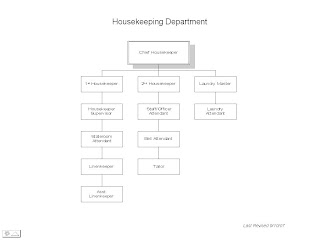
In the process of housekeeping general cleaning activities are completed, such as disposing of rubbish, storing of belongings in regular places, cleaning dirty surfaces, dusting and vacuuming. It is also the care and control of property, ensuring its maintenance and proper use and appearance. In a hotel, "housekeeping" is also a term for the cleaning personnel.[1]
Some housekeeping is housecleaning and some housekeeping is home chores. Home chores are housework that needs to be done at regular intervals,[2] Housekeeping includes the budget and control of expenditures, preparing meals and buying food, paying the heat bill, and cleaning the house.[3] Outdoor housecleaning chores include removing leaves from rain gutters, washing windows, sweeping doormats, cleaning the pool, putting away lawn furniture, and taking out the trash.[4]
Beautiful Hilly Side Resort

Towns that contain resorts—or where tourism or vacationing is a major part of the local activity—are often called resort towns. Towns such as Sochi in Russia, Sharm el Sheikh in Egypt, Barizo of Spain, Cortina d'Ampezzo of Italy, Druskininkai of Lithuania, Nice or French Riviera of France[1] or Newport, Rhode Island or St. Moritz, Switzerland, or larger regions, like the Adirondack Mountains or the Italian Riviera are well known resorts. The Walt Disney World Resort is a prominent example of a modern, self-contained commercial resort. Resorts exist throughout the world, increasingly attracting visitors from around the globe. Thailand, for instance, has become a popular destination. Resorts are especially prevalent in Central America and the Caribbean. Closely related to resorts are convention and large meeting sites. Generally these occur in cities where special meeting halls, together with ample accommodations as well as varied dining and entertainment are provided.
Hill side hotel inn
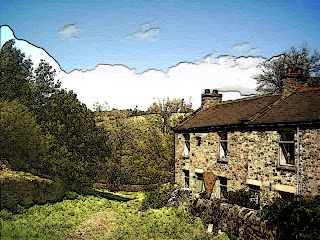
inn, in Great Britain, any hotel, public house, tavern, or coffeehouse where lodging is provided. In American usage, the inn is generally a small rural lodging house for transients. Among the earliest public houses were empty huts placed at caravan stops in the Middle East for the shelter of traders and travelers. To pilgrims, temples and religious houses gave rest and refreshment-a custom that still lingers in some Alpine hospices. The Romans maintained post stations on their great highways for the use of messengers of state and those especially privileged. For the accommodation of ordinary transients, stabularia were kept for man and beast. In the Middle Ages hospitality was observed as one of the Christian duties by the establishment of hospices in cities and by the entertainment of travelers at monasteries. Inns kept for profit appeared in Europe about the 15th cent. and gained a reputable standing in England, often being named for the powerful family on whose holdings they were established. They were usually built around a courtyard, approached by a wide, covered entry. In America, colonial inns
similar to the English hostelries sprang up along the great turnpikes.
Air port hotel
 The hotel which are located in 15 kilometer diameter of airport is known as airport hotel .These hotel’s are mainly for transit passenger airport hotel’s unlike any other hotel differ drastically interm’s of its size and service .Mostly airlines passenger with cancel flight and airlines crow stay in airport hotel’s these passangers who have very limited time and are unable to make to down town hotel’s also stay there . The room rate is comparatively high and length of stay is shorter . Room may also be available in housely basic
The hotel which are located in 15 kilometer diameter of airport is known as airport hotel .These hotel’s are mainly for transit passenger airport hotel’s unlike any other hotel differ drastically interm’s of its size and service .Mostly airlines passenger with cancel flight and airlines crow stay in airport hotel’s these passangers who have very limited time and are unable to make to down town hotel’s also stay there . The room rate is comparatively high and length of stay is shorter . Room may also be available in housely basicSub Urban Hotel

This hotels are located away from center therefore has the advantage of peaceful surrounding and rates are quated made rate to law such hotel's are ideal for budget traveller's and better choice for organization to conduct conferences and seminar's due to it's location advantage.The length of its location advantage the length of guest stay is usually longer ?
Motel
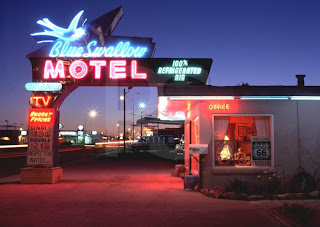
Motels developed in the second decade of the twentieth century to fill the need for functional, accessible, and economical sleeping accommodations catering to the burgeoning number of automobile travelers. Variously known as "tourist cabins," "motor courts," or "cabin camps," individually operated cabin complexes sprang up along highways, especially in the South and West.
The term "motel," a contraction of "motor" and "hotel," was coined in the mid-1920s. By the mid-1930s motels were more decorative, with quaint exteriors mimicking local architectural motifs. A few entrepreneurs experimented with luxurious or exotic designs, including accommodations adapted from aircraft or modeled on log cabins, historic structures, even wigwams.
The number of motels exploded following World War II (1939–1945), tripling from about 20,000 in 1940 to over 60,000 by 1960. More economical and standardized attached units, individualized by absurdly garish signs, gradually replaced cabins as the preferred motel design.
In the second half of the twentieth century, the individually owned motel gave way to corporate chains such as Best Western and Holiday Inn. Motels are increasingly similar to the hotels that they once challenged, locating in urban areas, adding stories, and, especially, creating elegant spaces and business centers to accommodate private and corporate events.
Hotels locations
What is Hotel

A Hotel or inn may be defined as an estblishment whos'e primary business is to provide fooding and lodging facilities to the general public.In the mean time it most provide one or more of the available facilities to such as room attendent service,concierge,bell and door attendant service ,laundry and valet service etc.hotel most provide food and shelter to travellers on payment and has right to refuse if the traveller is not in fit condition or is not in the position to pay for the service how ever the world hotel is ment for the hospitality providing service in a honest manner and organised way to at statific time taghtfully being always ready to serve and loyal to the guest?
Hotel Management (Housekeeping)

is the systematic process of making a home neat and clean in approximately that order. This maybe applied more broadly that just an individual home, or as a metaphor for a similar "clean up" process applied elsewhere such as a procedural reform. It can also be called household management, which is the act of overseeing the organizational, financial, day-to-day operations of a house or estate, and the managing of other domestic concerns.
In the process of housekeeping general cleaning activities are completed, such as disposing of rubbish, storing of belongings in regular places, cleaning dirty surfaces, dusting and vacuuming. It is also the care and control of property, ensuring its maintenance and proper use and appearance. In a hotel, "housekeeping" is also a term for the cleaning personnel.[1]
Some housekeeping is housecleaning and some housekeeping is home chores. Home chores are housework that needs to be done at regular intervals,[2] Housekeeping includes the budget and control of expenditures, preparing meals and buying food, paying the heat bill, and cleaning the house.[3] Outdoor housecleaning chores include removing leaves from rain gutters, washing windows, sweeping doormats, cleaning the pool, putting away lawn furniture, and taking out the trash.[4]
Tools include the vacuum cleaner, broom and mop. Supplies such as cleaning solutions and sponges are sold in grocery stores and elsewhere. Professional cleaners can be hired for less frequent or specialist tasks such as cleaning blinds, rugs, and sofas. Professional services are also offered for the basic tasks. Safety is a consideration because some cleaning products are toxic and some cleaning tasks are physically demanding. Green cleaning refers to cleaning without causing pollution. The history of housecleaning has links to the advancement of technology.Hotel Management
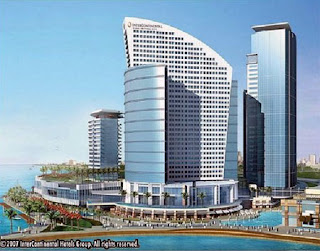
Hotel Management is the best subject in my life i love to reading Hotel Management.This subject is related to hotel. How to deal with hotel and how to satisfied the people who will visited in our hospitality ? this subject is very well to make the people good. It also helps the people to give good manner how to talk how to deal how to explain about hospitality every things? In my view most of The people have wants to earn more and more money in theri life but this subject has to response to earn money also and it have to suggested good manner also which helps to people to make well every kinds of filds in the world ? this hotel management fild is very . In my view this hospitality management make people well and they knew how to work in the hotel how to response and have good behave to peoples?I like to thanks God who will give me chance to knew about hotel management and am very glad to find good teacher to knew about hospitality management?



